
Past Events › Film Screening
Events List Navigation
Sister Rose’s Passion
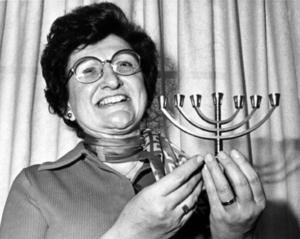
1 PM LOS ANGELES • 4 PM NEW YORK
xxxxx
A celebration of the extraordinary life and work of Sister Rose Thering and her successful quest to rid Catholic School education of anti-Semitism. Rose was a young nun in the Dominican order, determined to stop the Catholic Church from teaching hate, and prove that the doctrine blaming Jews for the death of Jesus was irreconcilable with her notion of a loving God. Rose’s efforts paved the way for the historic Vatican II Council and the papal encyclical that reformed the Church’s teachings about Jews. She later became a renowned Holocaust educator and received the Courage to Care award from the Anti-Defamation League.
A Celebration of Life! The Rescue Mission of Mr. & Mrs. Kraus
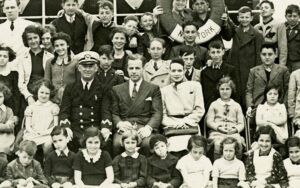
1 PM LOS ANGELES • 4 PM NEW YORK
xxxxx
Heartwarming and uplifting! In the spring of 1939, Gilbert and Eleanor Kraus, a Jewish couple from Philadelphia, embarked on a risky and unlikely mission. Traveling into the heart of Nazi Germany, they rescued 50 Jewish children from Vienna and brought them to the United States.
Exodus — The Ship that Launched a Nation
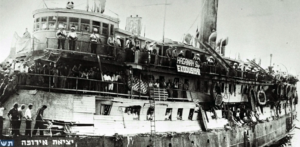
11 AM LOS ANGELES • 2 PM NEW YORK
xxxxx
The story of the Exodus, the ship that carried 4,500 Jewish refugees from Europe to Palestine in 1947, encapsulates the essence of Israel’s creation — a journey, an exodus — from the hellish depths of the Holocaust to the exhilarating heights of independence and nationhood.
Symphony of Courage
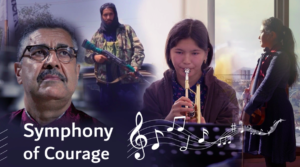
1 PM LOS ANGELES • 4 PM NEW YORK
xxxxx
Symphony of Courage from filmmaker Beth Mendelson shines a light on Portugal as a safe haven once again for fleeing refugees. It tells the story of the evacuation of the students of the Afghanistan National Institute of Music (ANIM) following the Taliban takeover, after music was outlawed. ANIM’s director Dr. Ahmad Sarmast worked with an international team of philanthropists, politicians, and musicians to facilitate their rescue to Lisbon — their new home, where they can play music once again in a free and open society.
A Voice Among the Silent — The Legacy of James G. McDonald
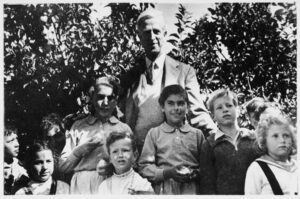
11 AM LOS ANGELES • 2 PM NEW YORK
xxxxx
A Voice Among the Silent is the first film to shine a light on James G. McDonald’s efforts to warn the US government of Hitler’s plan for the Jews. The son of Catholic immigrants, he was one of the first Americans to meet face-to-face with Hitler in 1933. This frightening encounter changed his life and plunged him into the effort to rescue Jews. Later, he was appointed as the first US Ambassador to Israel, and in this role he helped shape US policy and aid towards Israel for generations to come.
Marcel Marceau and the French Resistance
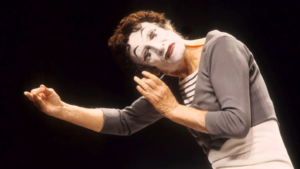
11 AM LOS ANGELES • 2 PM NEW YORK
xxxxx
The great French mime Marcel Marceau was the son of a kosher butcher who was murdered at Auschwitz. Following his father’s deportation, Marcel joined the French Resistance, assisting his cousin Georges Loinger in escorting Jewish children from Nazi-occupied France to neutral Switzerland. He used his artistry and charisma to engage with the children and keep them quiet during their long and perilous trek to freedom. Later he gave his first major performance to 3000 US troops after the liberation of Paris in August 1944.
The Waldheim Waltz
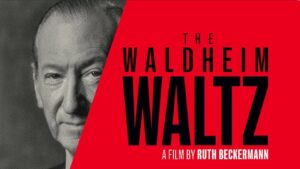
11 AM LOS ANGELES • 2 PM NEW YORK
xxxxx
Ruth Beckermann‘s film The Waldheim Waltz is about truth, lies and how a dishonest man can rise to power. The film documents the process of uncovering former UN Secretary General Kurt Waldheim’s wartime past. It shows the swift succession of new allegations by the World Jewish Congress during his Austrian presidential campaign, the denial by the Austrian political class, the outbreak of anti-Semitism and patriotism, which finally led to his election. Created from international archive material and what Beckermann shot at the time, the film shows that history repeats itself time and time again. Winner of the Berlin International Film Festival.
A Protest to the World: The Dramatic Story of Szmul Artur Zygielbojm
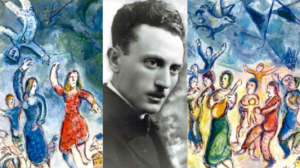
1 PM LOS ANGELES • 4 PM NEW YORK
xxxxx
Szmul Artur Zygielbojm was a Polish Jewish socialist politician and member of the Polish Government-in-Exile in London during World War II. A lifelong activist, he is most famous for his final act of protest to the world against the indifference of the Allies to the fate of Europe’s Jews. In this richly multimedia and life-affirming film-and-discussion program, Dr. Jud Newborn interweaves his thrilling discovery of Zygielbojm’s lost artifacts with an elegy to the lost world of the Jewish shtetl.
Remembrance in Germany Today — Stories of Hope
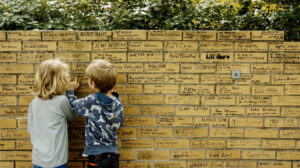
11 AM LOS ANGELES • 2 PM NEW YORK
xxxxx
Nowadays, 90 years after Hitler seized power, Germany has a vibrant remembrance culture aimed at raising public consciousness about the crimes of the past and the importance of standing up against bigotry and in support of democracy. Much of the most meaningful work is being done by unsung volunteers in towns and villages across the country.
Into the Arms of Strangers
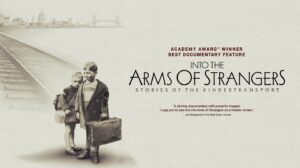
11 AM LOS ANGELES • 2 PM NEW YORK
This prizewinning film tells the touching and heartwarming stories of Jewish children from Germany, Austria and Czechoslovakia saved in England in 1938-39 under the Kindertransport program, prior to the onset of World War II.


